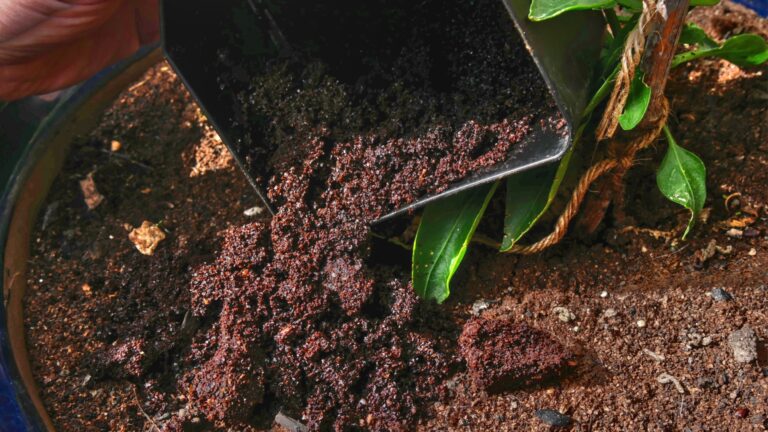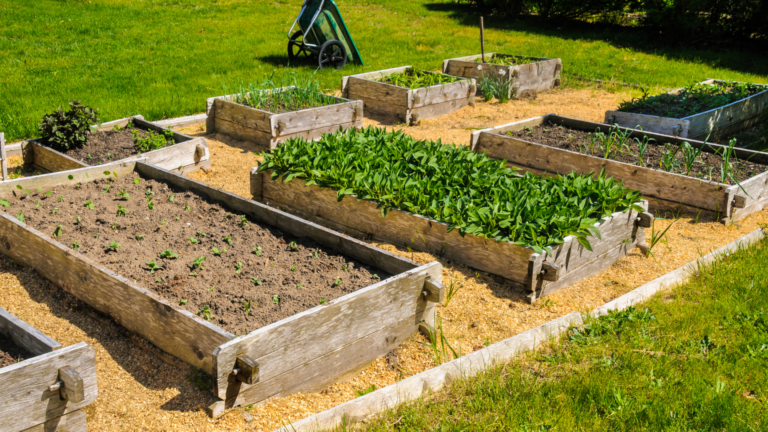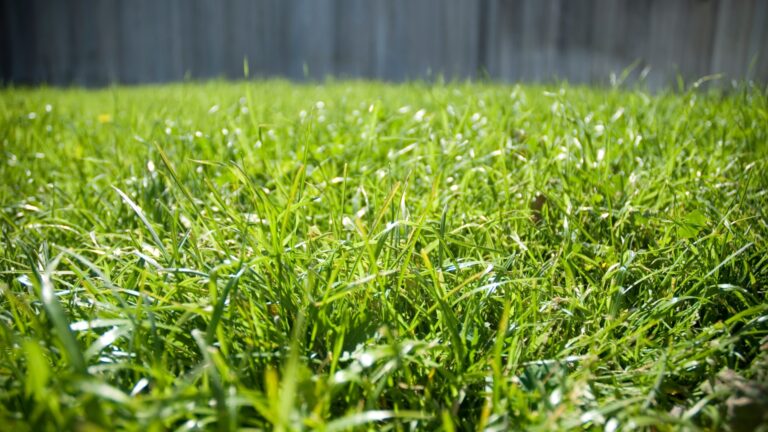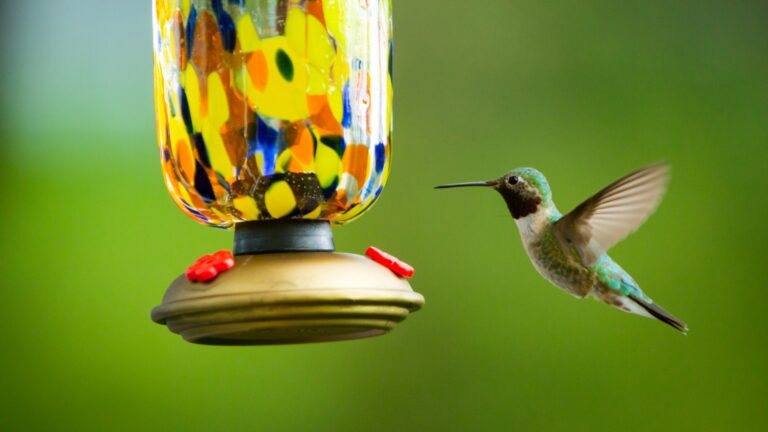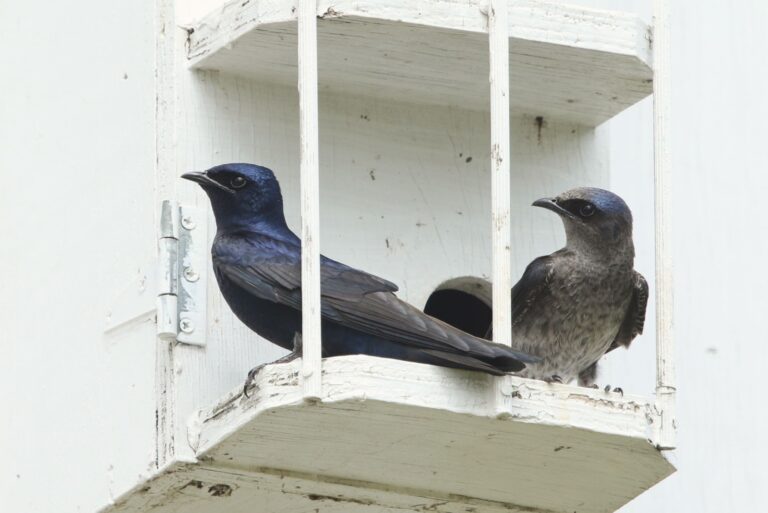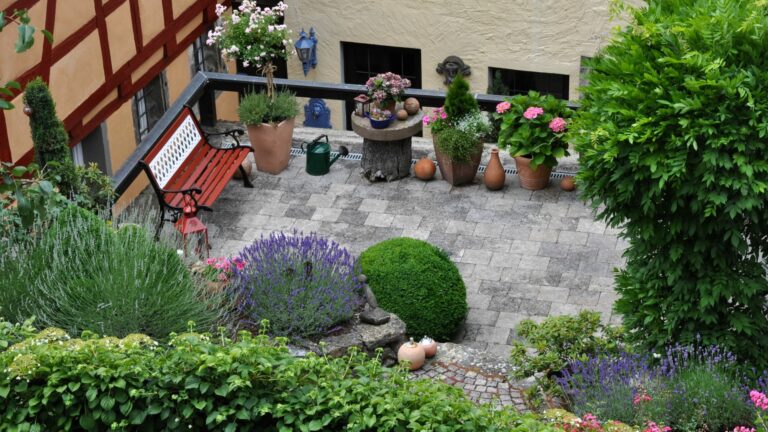18 Genius Gardening Hacks That’ll Save You Time And Cash
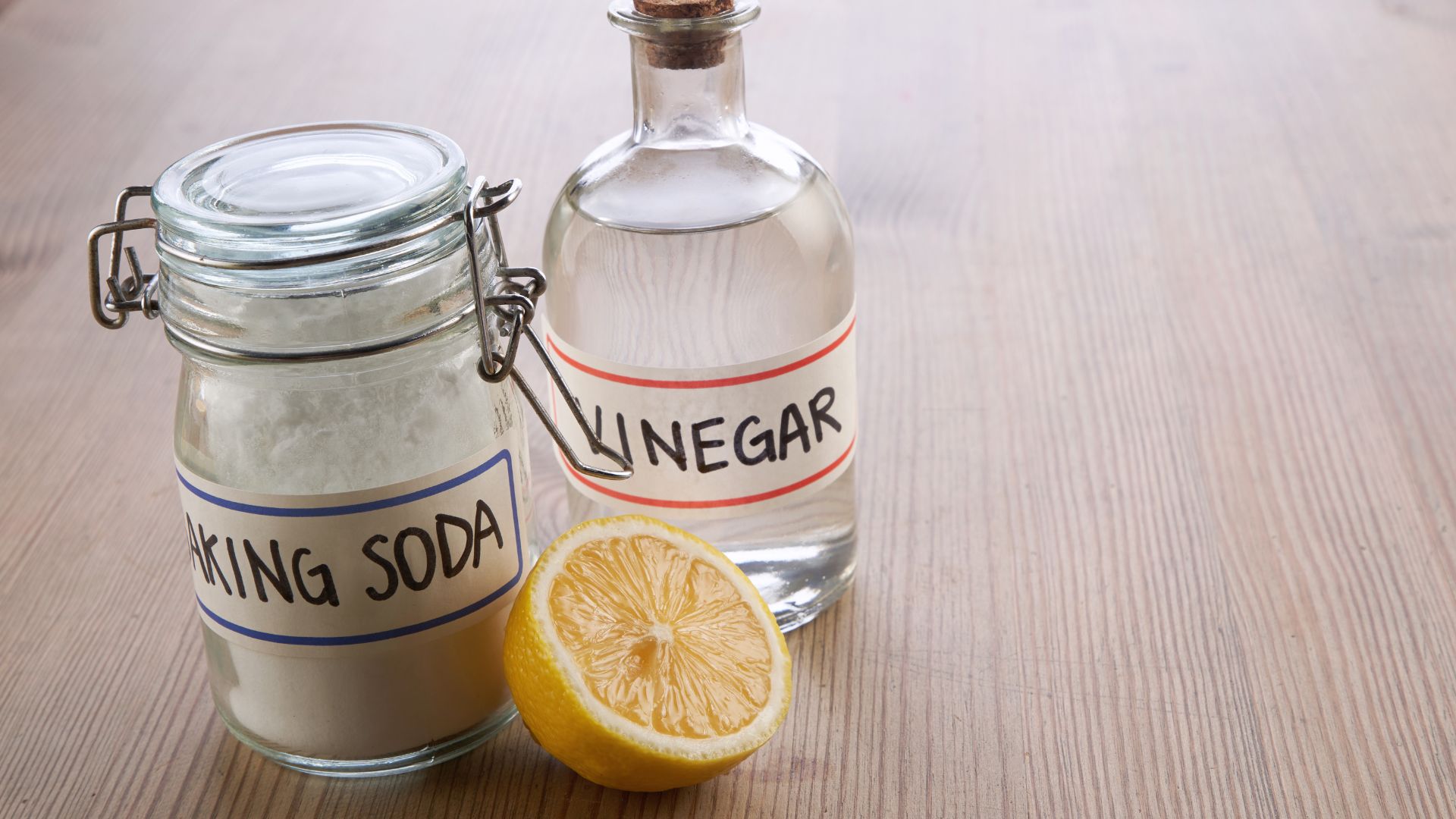
Gardening can be a delightful and rewarding hobby, but it doesn’t have to be expensive or time-consuming. With a few clever tricks, you can make gardening easier and more budget-friendly. These simple hacks will help you grow a flourishing garden while saving both time and money—perfect for any gardener!
1. Use Baking Soda for Sweeter Tomatoes
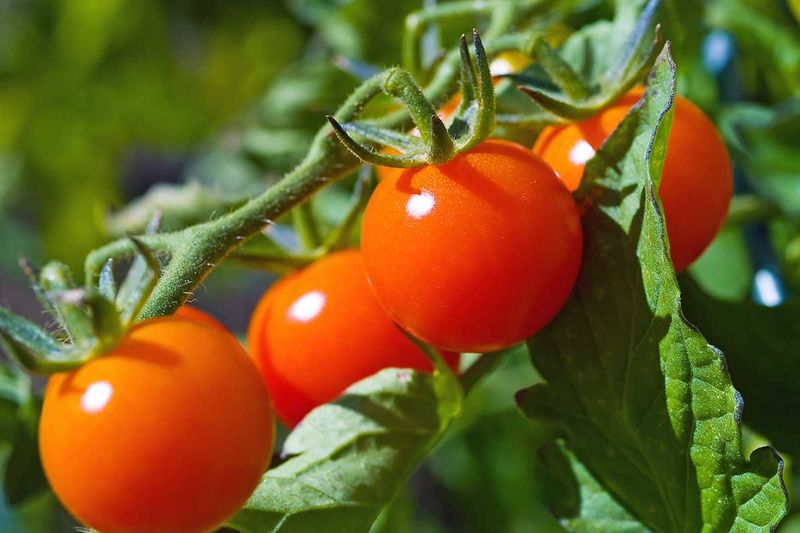
Baking soda can sweeten the taste of tomatoes. Sprinkle a small amount around the base of your tomato plants. The soil’s acidity decreases, resulting in sweeter tomatoes.
This trick is both easy and cost-effective. Plus, it’s a natural way to enhance flavor without chemicals! Tomatoes never tasted so good!
For an extra boost, try watering your plants early in the morning—this helps reduce evaporation and ensures your tomatoes stay juicy and full of flavor.
2. Eggshell Seed Starters
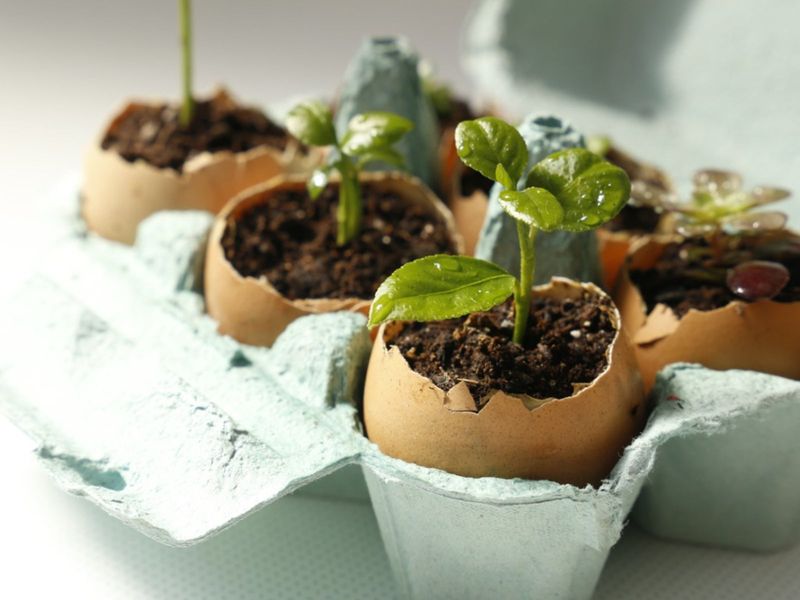
Eggshells can be transformed into biodegradable seed starters. Fill cleaned halves with soil and seeds, then place them in an egg carton.
Once seedlings sprout, plant the whole thing in the garden. The eggshells decompose, enriching the soil with calcium, and you’ll save money on seed pots.
You can also crush some eggshells and sprinkle them around your garden to deter slugs and snails—it’s a natural pest repellent!
3. Coffee Grounds for Pest Control
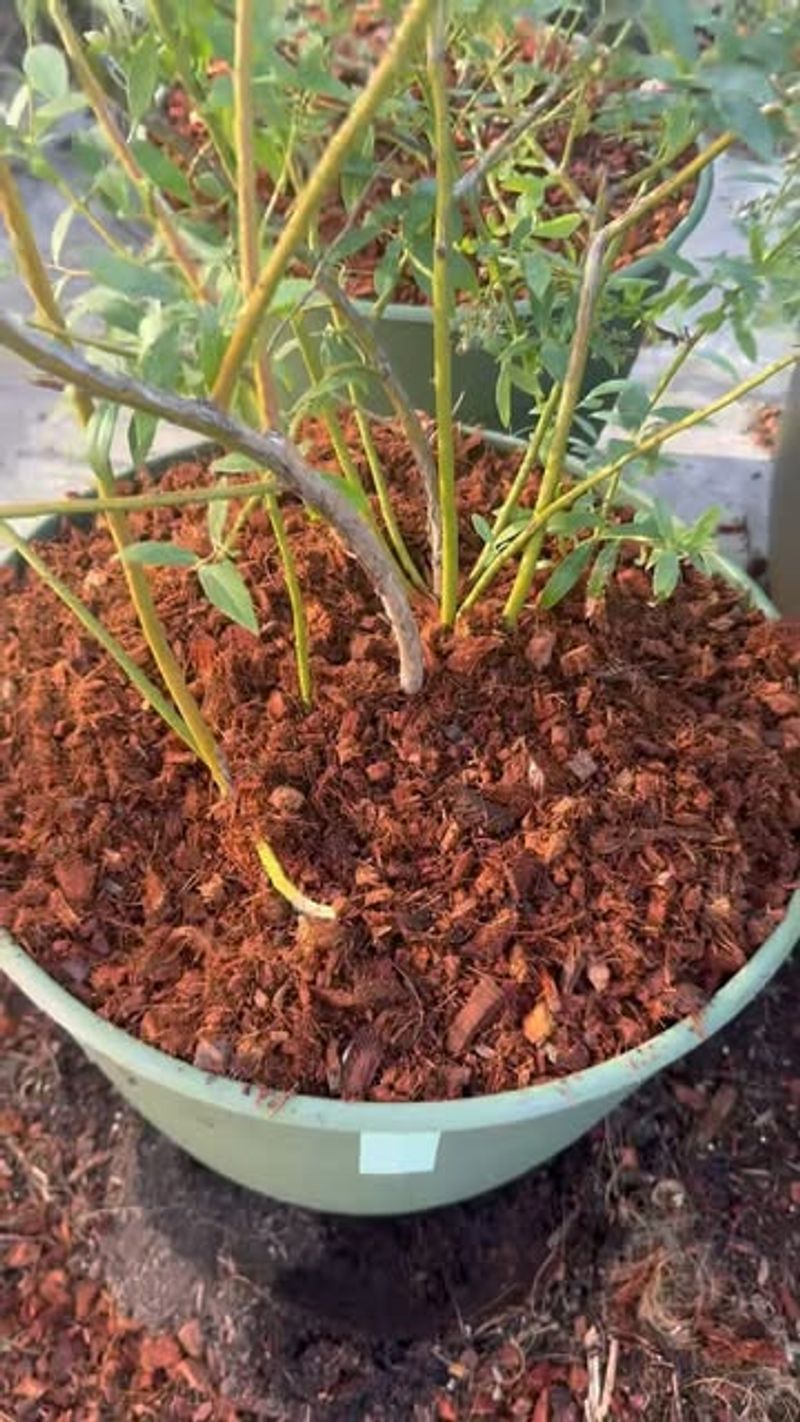
Used coffee grounds can deter pests like slugs and snails. Sprinkle them around plants to protect your garden. This method is eco-friendly and recycles kitchen waste.
Plus, coffee grounds add nitrogen to the soil, benefiting plant growth. Your garden stays healthy and pest-free with this simple hack.
To maximize benefits, mix coffee grounds into your compost pile—they help speed up decomposition and balance out carbon-rich materials.
4. DIY Drip Irrigation System
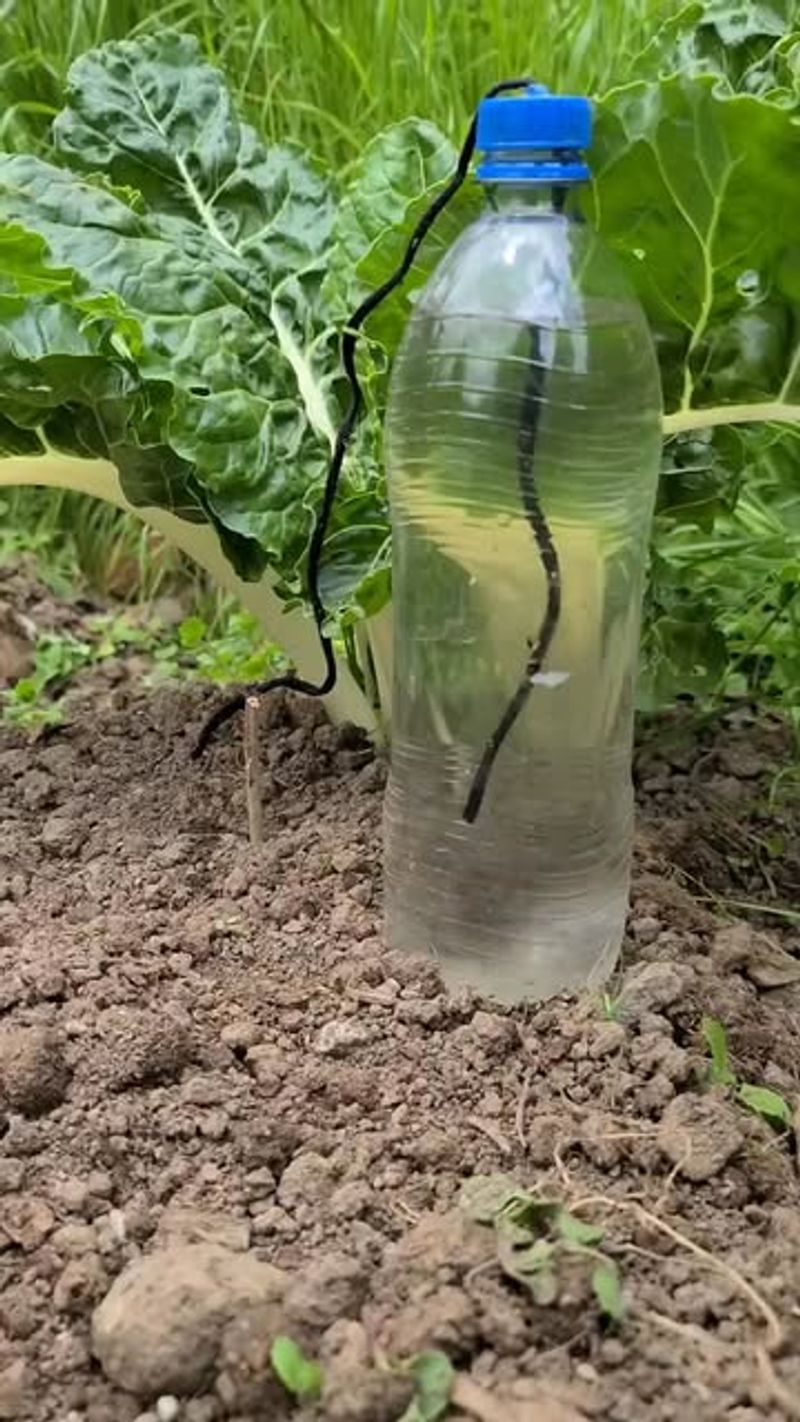
Creating a drip irrigation system with plastic bottles is an efficient way to water plants. Poke holes in the cap, fill the bottle with water, and bury it near the plant.
Water slowly seeps out, ensuring plants are consistently hydrated. This hack saves both water and your time!
You can also add a few drops of liquid fertilizer to the bottle—your plants will get a steady dose of nutrients along with hydration.
5. Cinnamon for Fungus Prevention
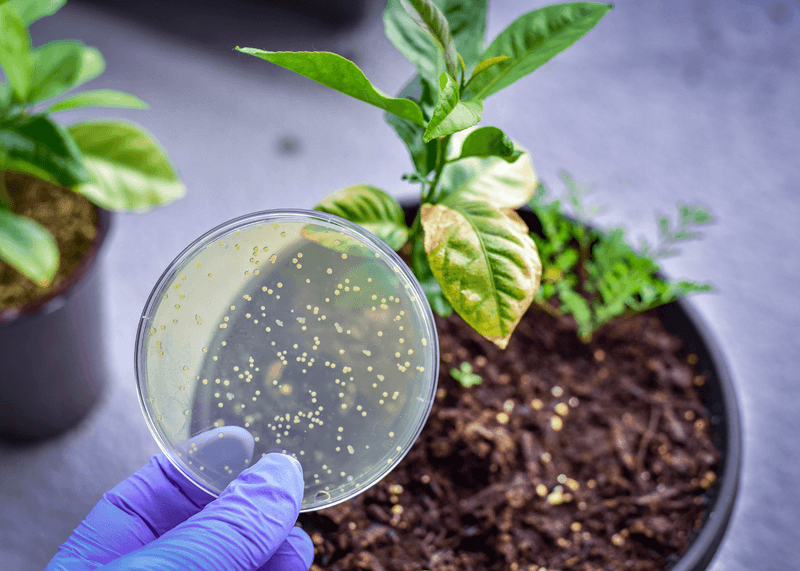
Cinnamon is a natural fungicide that can prevent fungus growth on plants. Sprinkle a little on the soil to protect seedlings from damping-off disease.
It’s an inexpensive and chemical-free solution. Your plants will thrive, and you’ll love the cinnamon scent wafting through your garden.
Another great method is to dab cinnamon on cuttings to encourage root growth and prevent rot. It’s perfect for propagating new plants with ease.
6. Newspaper Weed Barrier
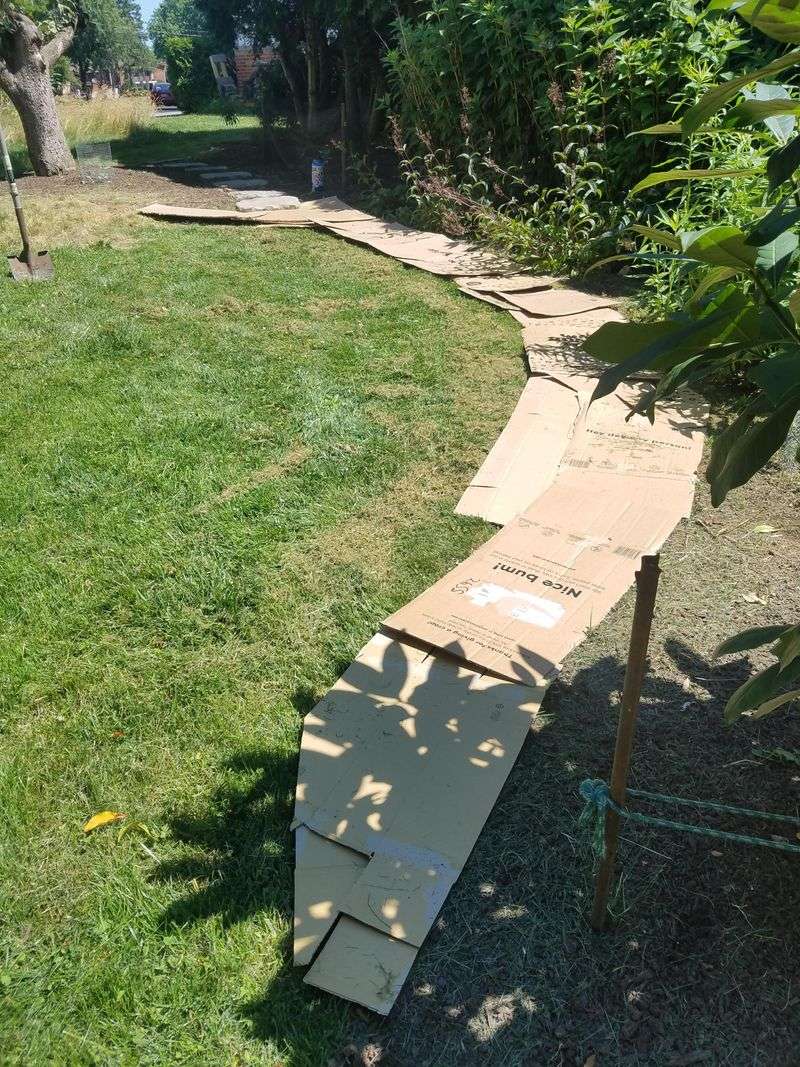
Don’t toss those old newspapers—put them to work in the garden. Layered beneath mulch, they block sunlight, smother weeds, and slowly decompose to enrich the soil.
It’s a low-effort, eco-friendly way to cut down on weeding. Want to level it up? Add a splash of compost on top before the mulch to kickstart the breakdown and give your plants a nutrient boost right from the start.
7. Vinegar for Cleaning Tools
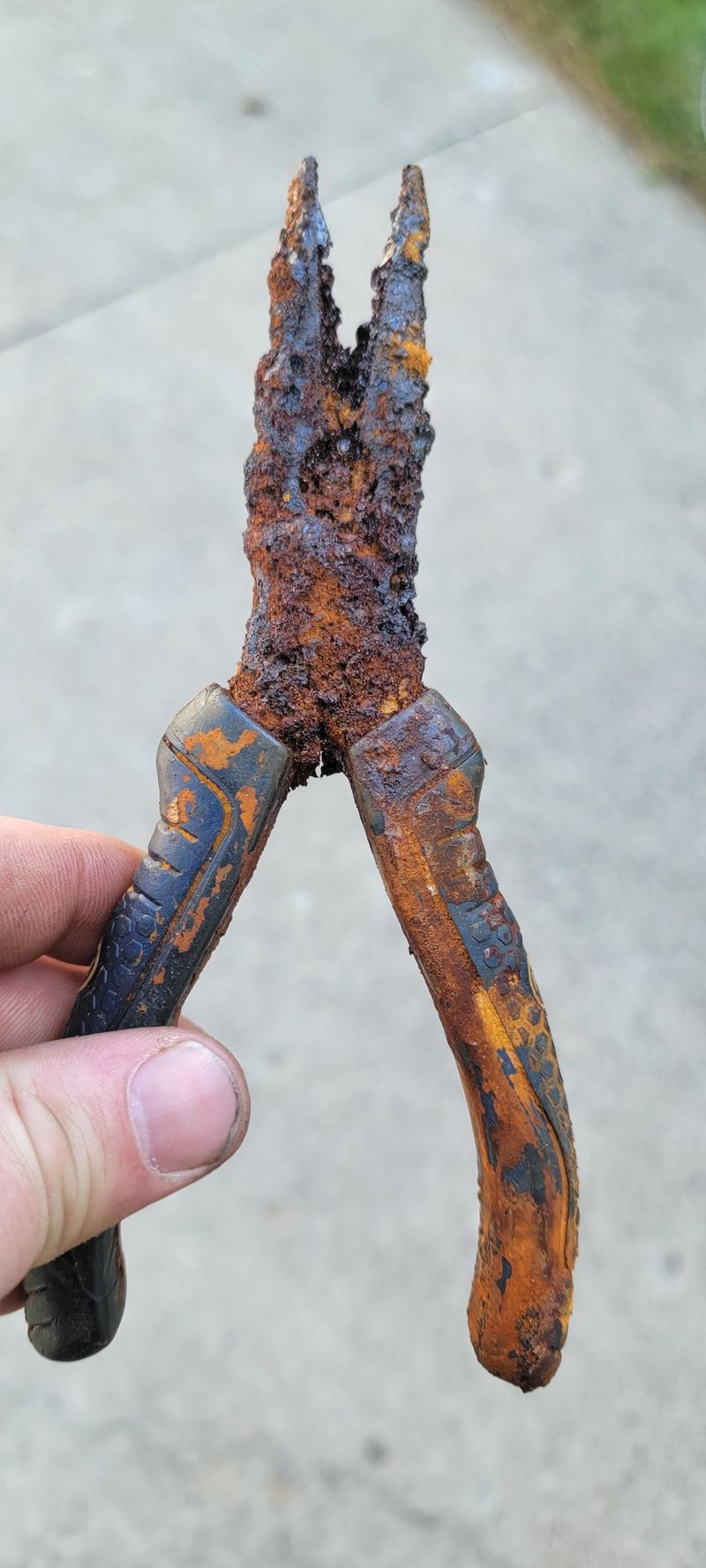
Rusty tools? Vinegar to the rescue. Just soak them overnight, give a light scrub, and rinse—no harsh chemicals needed. It’s an easy, budget-friendly fix that keeps your tools in top shape.
For extra shine and rust prevention, rub a little vegetable oil on the metal afterward.
Well-maintained tools not only last longer but make every gardening task smoother and more satisfying.
8. Banana Peel Fertilizer
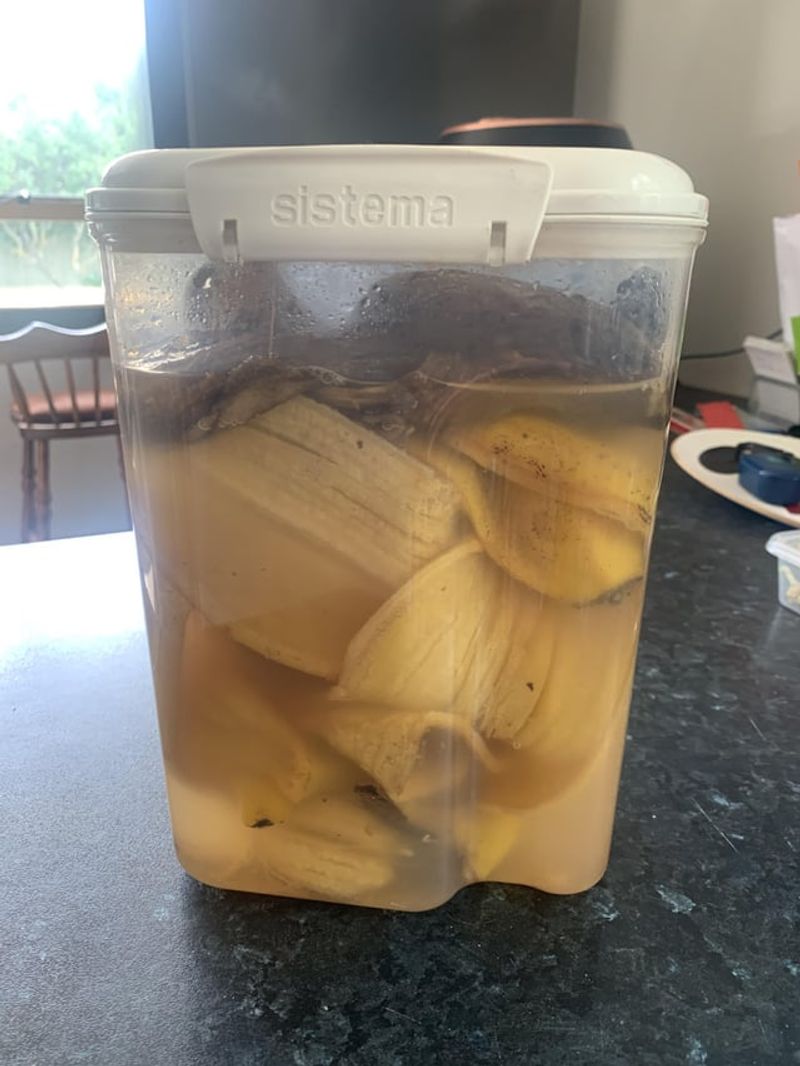
Before you toss that banana peel, consider your roses. Rich in potassium and other nutrients, peels make an excellent slow-release fertilizer when buried near the roots.
It’s a smart way to feed your plants without spending a dime. Want to give your garden an extra kick?
Blend banana peels with water to make a quick compost tea—perfect for a nutrient-packed drink your plants will love.
9. Epsom Salt for Greener Plants
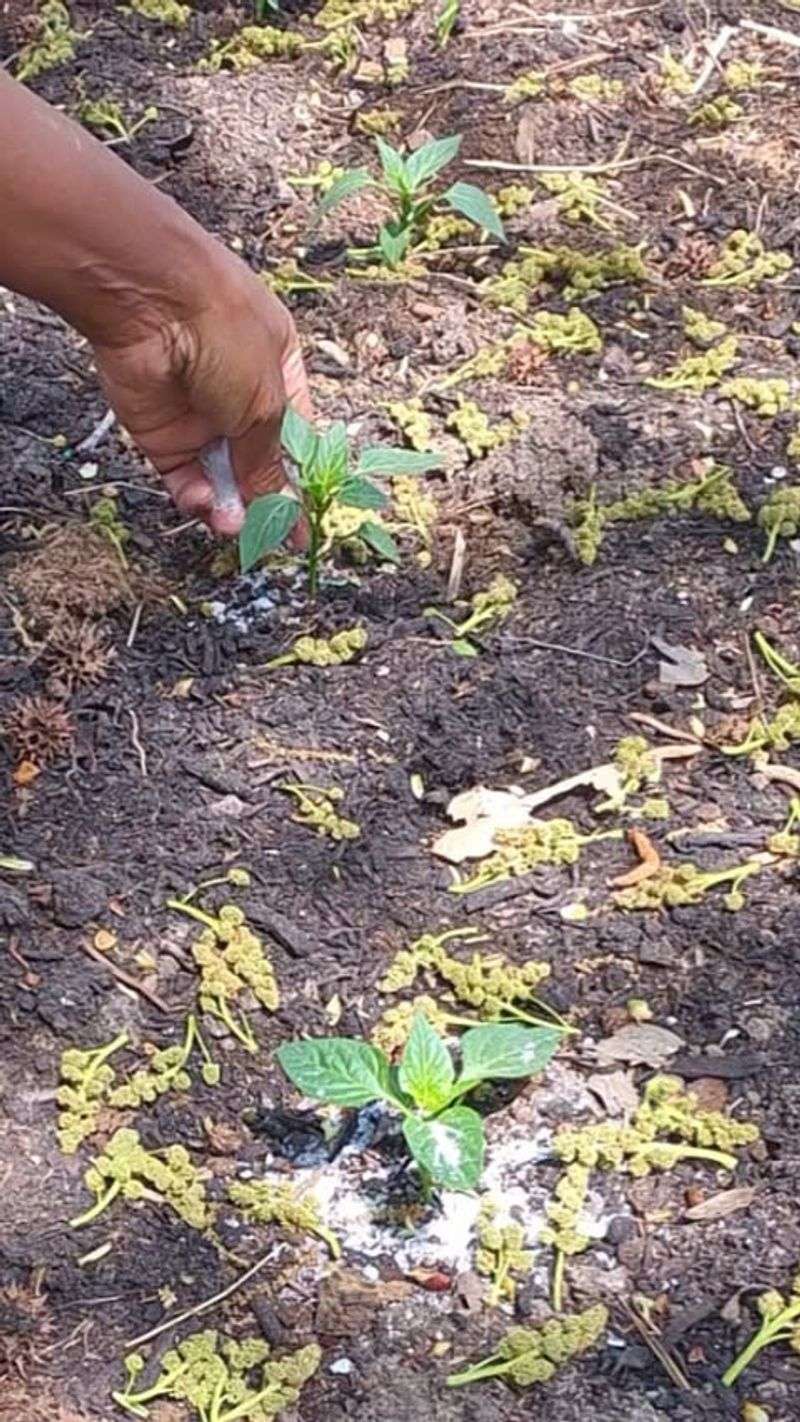
A little Epsom salt can go a long way in the garden. Rich in magnesium, it supports photosynthesis and encourages lush, green foliage.
Just mix it with water and mist your plants for an instant boost. For root-level support, sprinkle some into the soil before planting.
This is especially helpful for tomatoes and peppers. It’s an easy upgrade for healthier, happier plants without breaking the bank.
10. Plastic Forks to Deter Animals
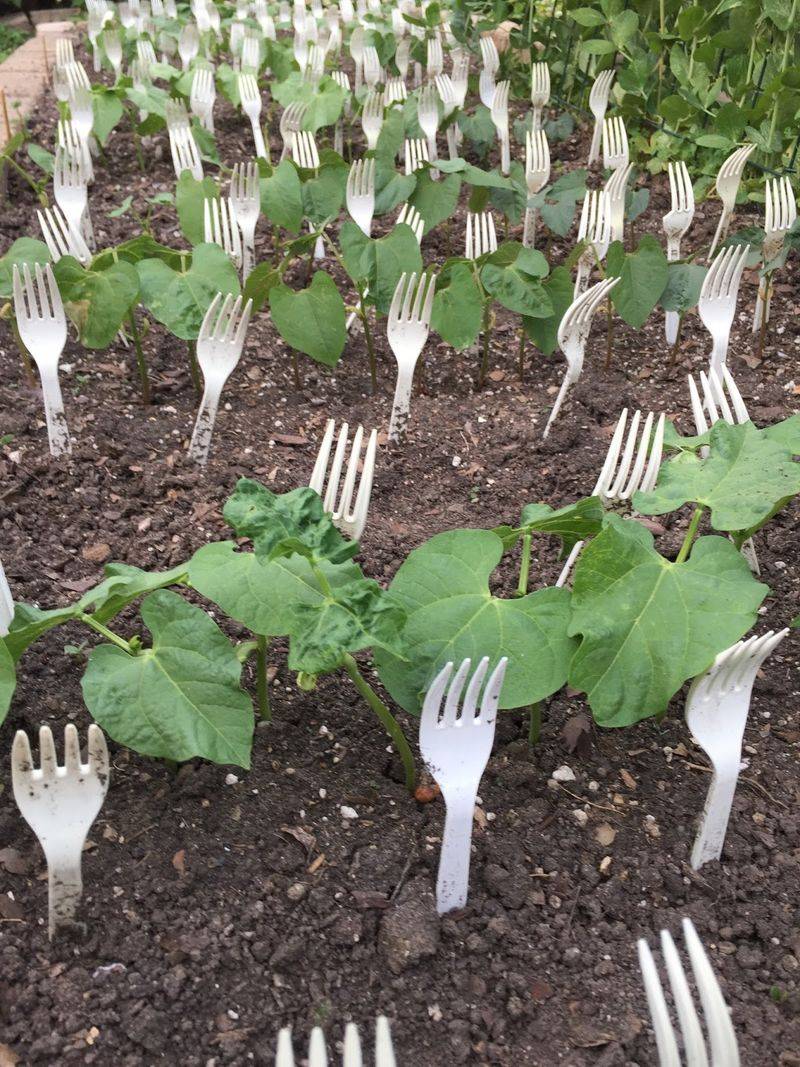
Plastic forks might look odd sticking out of the soil, but they’re a smart way to deter garden intruders. Prongs-up around your plants, they make the area uncomfortable for digging or prowling animals like cats and squirrels.
It’s a gentle, budget-friendly fix that works surprisingly well. For even more protection, consider scattering a bit of crushed red pepper or citrus peels around the perimeter.
The strong scent adds another layer of defense, keeping critters at bay without harming your plants or the wildlife.
11. Rainwater Harvesting
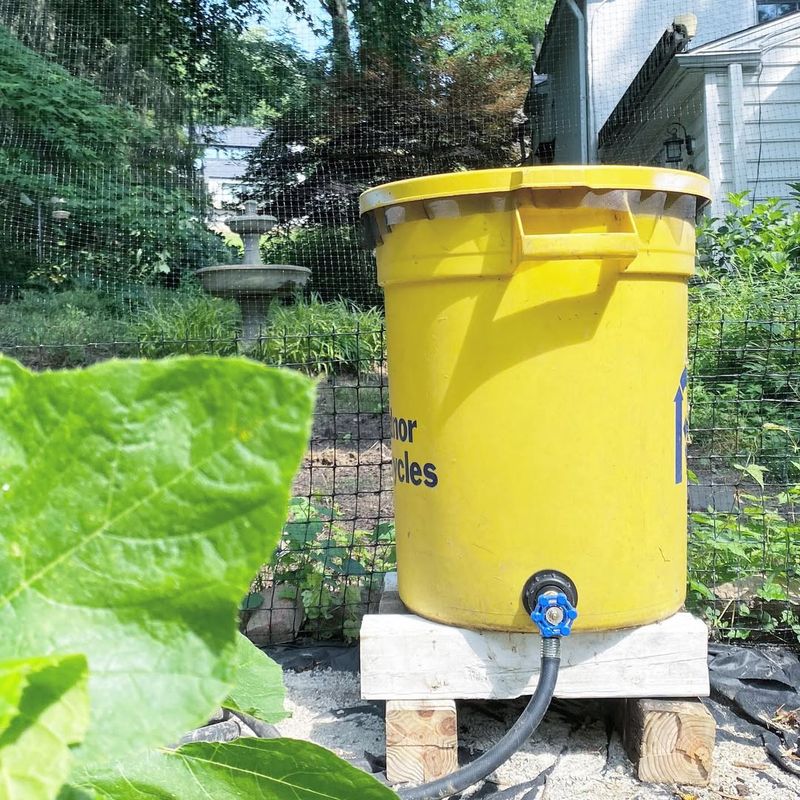
Rainwater is a free and natural resource your garden will love. By placing a barrel beneath a downspout, you can collect runoff from your roof and use it to hydrate your plants.
This not only helps reduce your water bill but also supports sustainable gardening. To take it further, add a mesh screen over the barrel to keep out debris and mosquitoes, ensuring clean water and an easy maintenance routine.
12. Hydrogen Peroxide for Plant Health
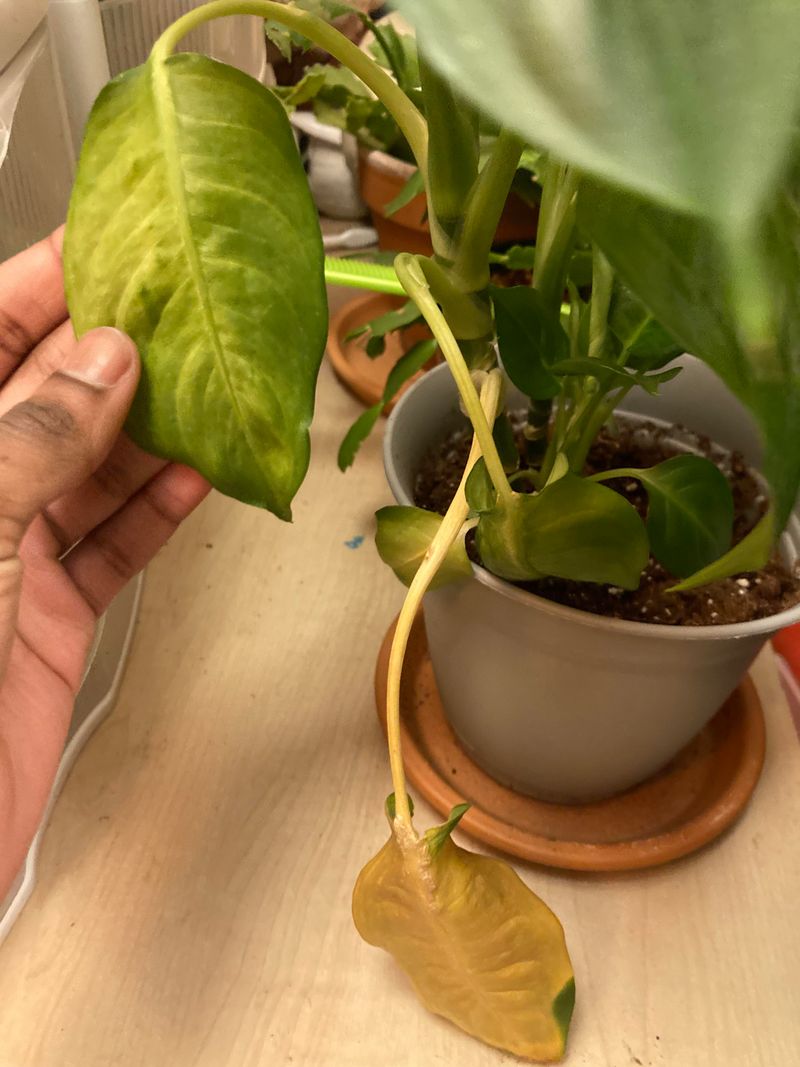
Hydrogen peroxide isn’t just for first aid—it can work wonders in the garden too. When diluted with water, it increases oxygen levels in the soil, helping roots breathe better and stay healthy.
This simple solution can prevent root rot and promote stronger, faster growth. For best results, apply it during watering or use it as a foliar spray.
It’s an affordable way to give your plants a boost and keep them thriving.
13. Soap for Leaf Shine
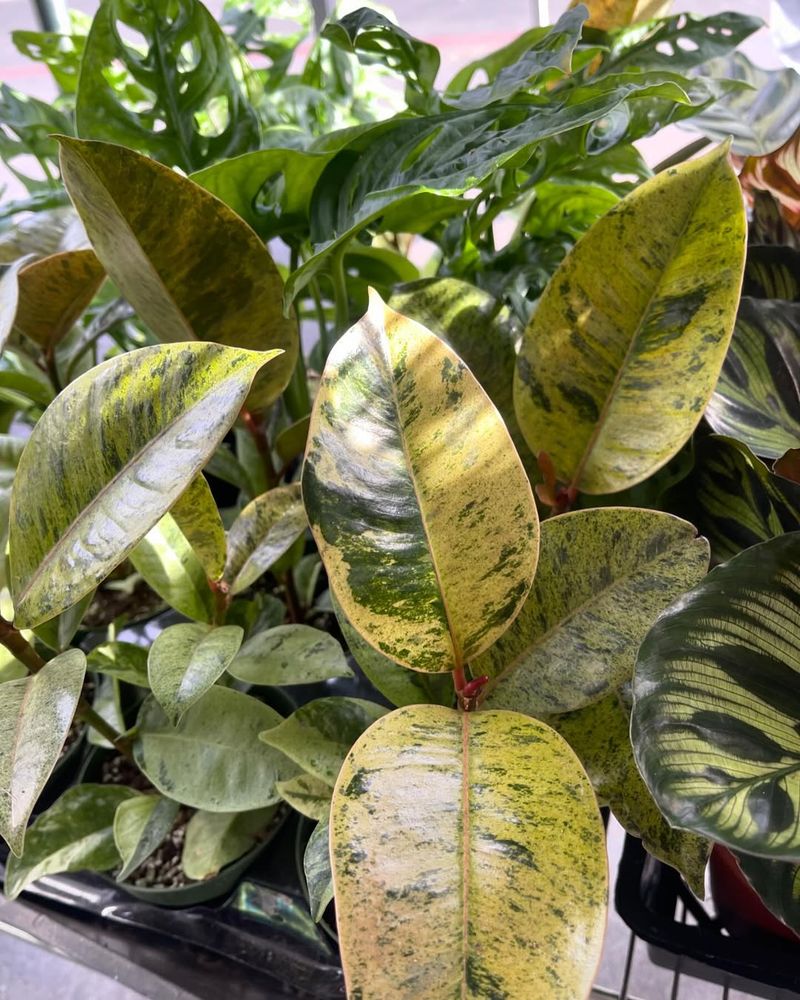
Indoor plants can lose their shine under a layer of dust, but a little mild soap can help bring back their glow. Mix a small amount with water and gently wipe down the leaves using a soft cloth.
This not only cleans the surface but also helps the plant breathe better by clearing clogged pores. To keep them looking their best, repeat the process every few weeks.
Your houseplants will stay vibrant, clean, and photo-ready.
14. Mulch with Grass Clippings
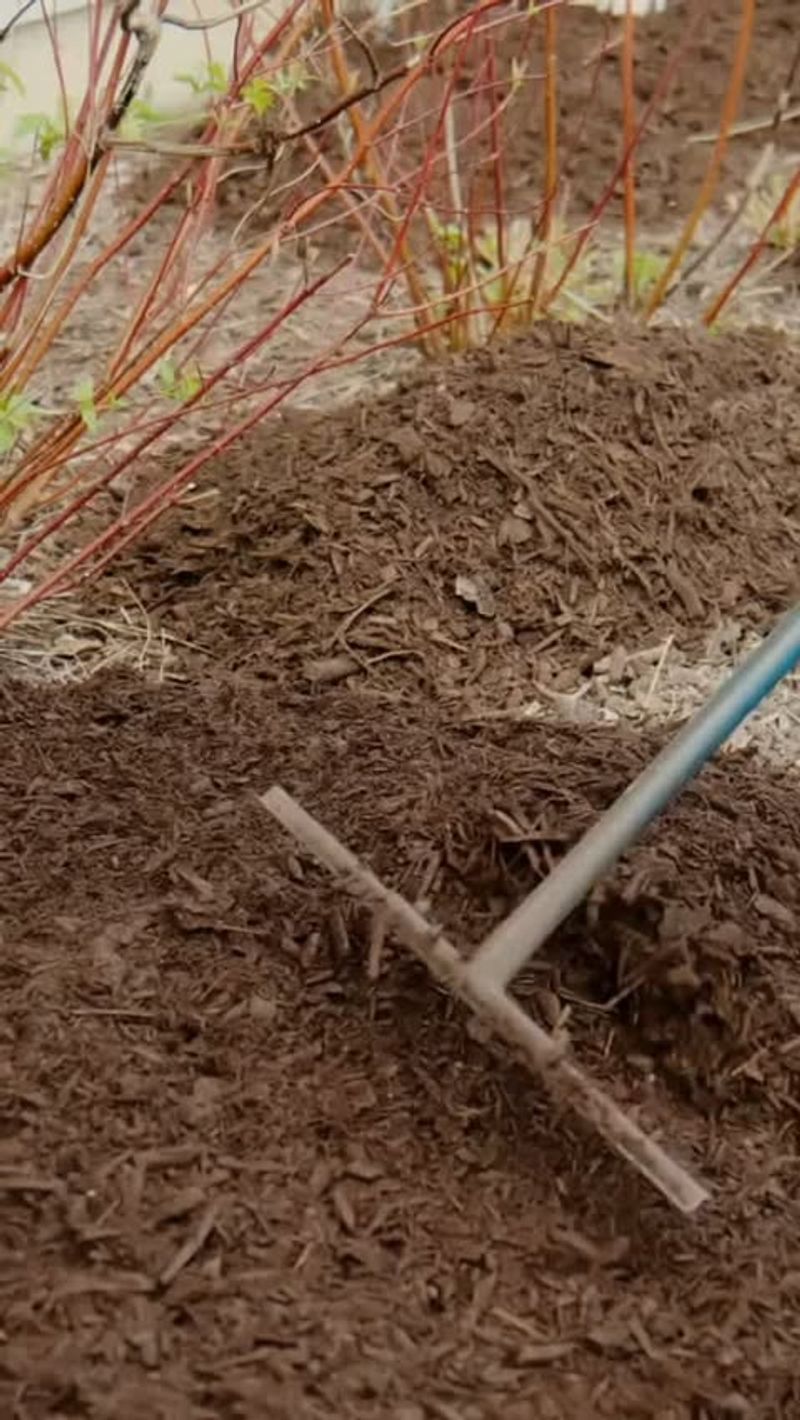
Don’t let those grass clippings go to waste after mowing. Spread them around your garden beds to create a natural mulch that locks in moisture and blocks out weeds.
As the clippings break down, they return valuable nutrients to the soil, giving your plants an extra boost. Just be sure to use dry clippings in thin layers to avoid matting.
It’s an effortless way to recycle lawn waste and support a healthy, low-maintenance garden.
15. DIY Composting
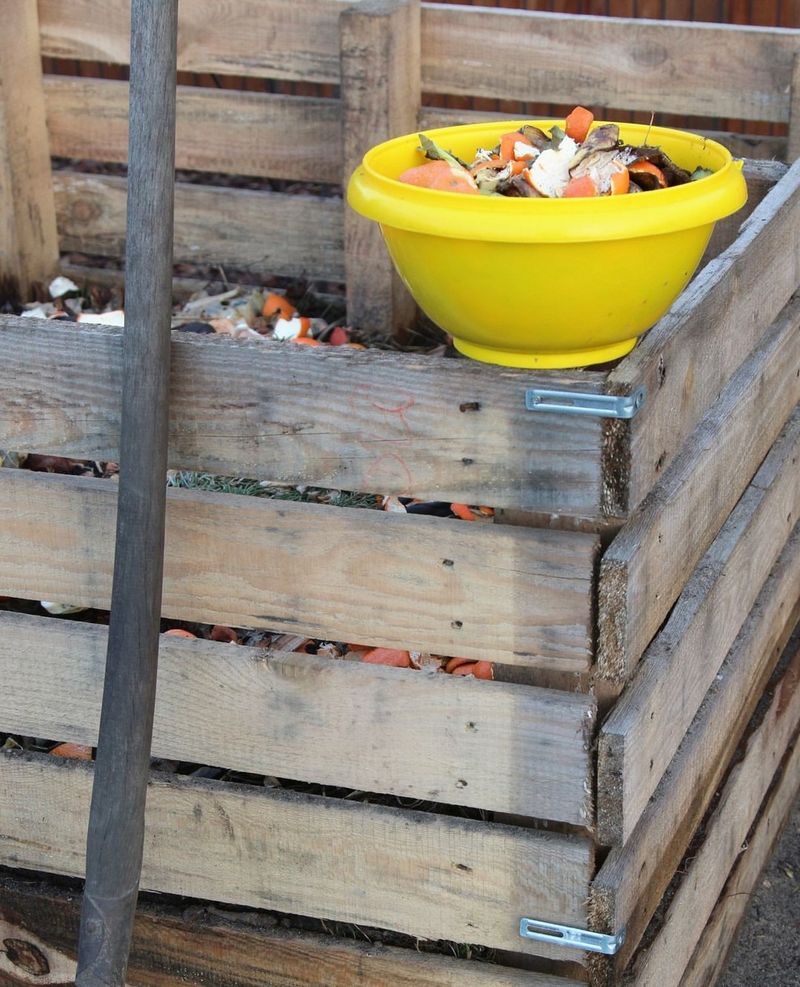
Composting turns everyday kitchen scraps and yard waste into black gold for your garden. By setting up a simple compost bin, you can recycle peels, coffee grounds, leaves, and more into rich, fertile soil.
This not only cuts down on household waste but also feeds your plants with organic nutrients. Stir the pile regularly and keep it moist to speed up the process.
It’s an easy, eco-conscious habit that leads to healthier plants and a greener lifestyle.
16. Gardening with Marigolds
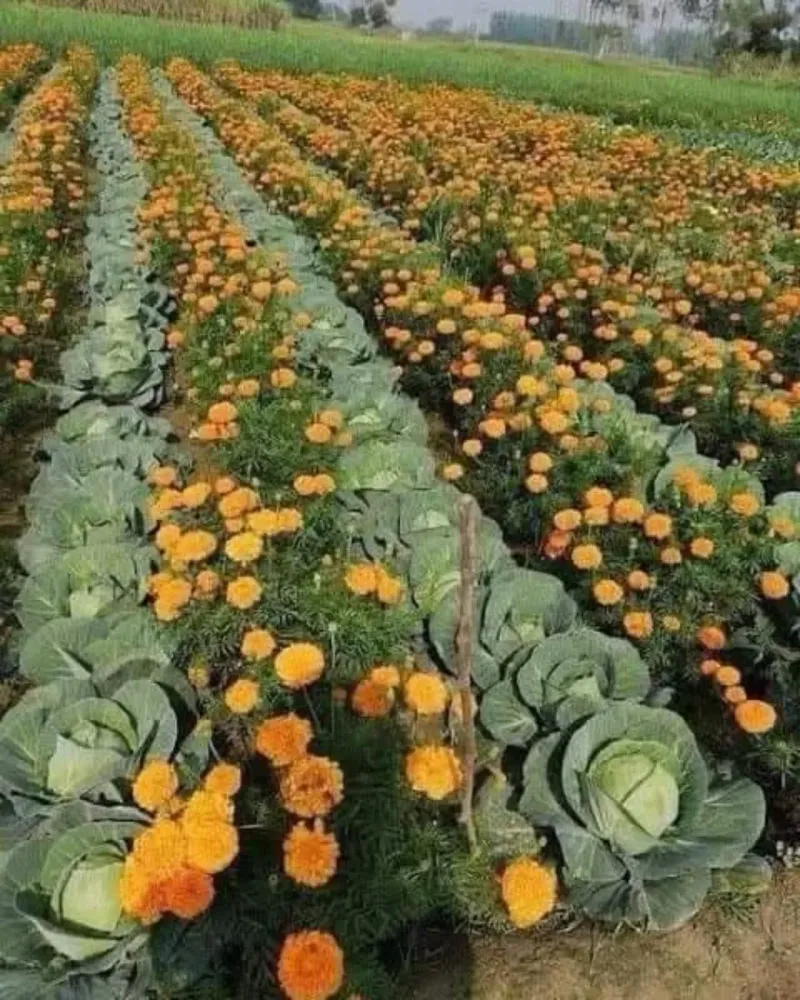
Marigolds do more than brighten up your garden—they also work as natural pest repellents. Planted alongside vegetables, their strong scent helps keep harmful insects like aphids and nematodes at bay.
These hardy flowers are easy to grow and thrive in full sun, making them a low-maintenance companion for your crops. With marigolds on duty, your garden stays vibrant, protected, and pesticide-free.
17. Aloe Vera for Plant Rescues
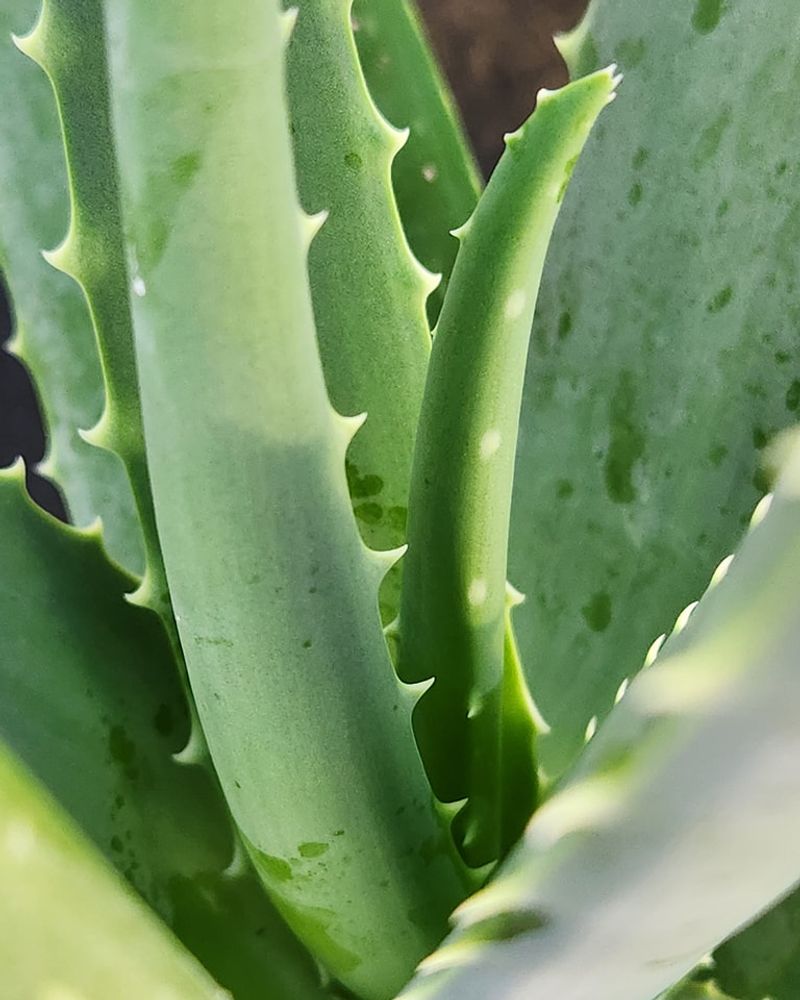
Aloe vera isn’t just great for skin—it can help revive struggling plants too. The gel inside its leaves contains natural growth hormones that support healing and regeneration.
Simply apply the gel to damaged stems or leaves to encourage recovery. It’s a gentle, chemical-free remedy that’s especially useful after transplant shock or pest damage.
Additionally, aloe vera gel can serve as a natural rooting hormone. When propagating plant cuttings, dipping the cut end into fresh aloe gel before planting can promote faster root development and reduce the risk of disease.
18. DIY Herb Spiral
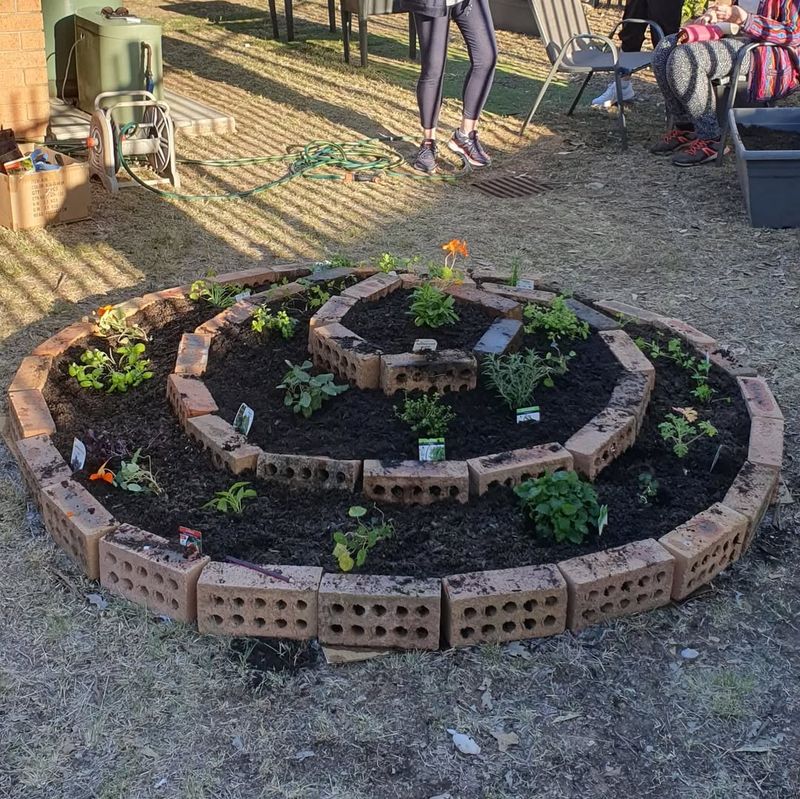
A herb spiral is a brilliant solution for maximizing garden space while catering to the diverse needs of various herbs. By constructing a spiral-shaped mound using materials like stones or bricks, you create multiple microclimates within a compact area.
The top of the spiral, being drier and more exposed to sunlight, is ideal for Mediterranean herbs such as rosemary and thyme. Conversely, the lower sections retain more moisture, making them perfect for herbs like mint and parsley.
This design not only optimizes growing conditions but also enhances the aesthetic appeal of your garden.

